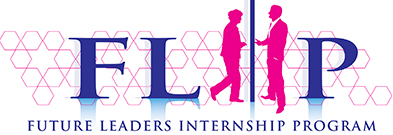Have you dreamt of becoming a doctor one day?
Maybe you’ve had an undying fascination for all things biological since you were little or maybe you recently developed an interest in a specific medical field.
Whatever your motivation, don’t think of the healthcare sector as just something to impress your parents and extended family. There are plenty of other reasons why you should consider entering the medical field.
For one, it’s a prominent industry with opportunities for career progression. Doctors and medical specialists are known for having jobs with stability and well-paid salaries. Also, don’t forget that if you decide to work in the medical field, you’ll be taking on a noble cause (saving lives and making a difference in a big way) so there’s the job fulfilment aspect.
With that being said, the healthcare sector can be an overwhelming one to navigate. There is an extensive set of specific positions and medical areas to cover and, on top of that, a range of trends and recent developments are beginning to slowly transform many of the field’s traditional elements.
We spoke with Dr Jude Murugasu, a veteran Anesthesiologist from the reputable Sunway Medical Centre, who provided details on the current state of the healthcare sector and offered advice on how to increase your chances of employment. Here are some of his key takeaways.
Key Skills
“Applicants need to develop skill sets that help them interact with management and customers,” Dr Jude said of the focus on proper skills.
Among the skills that are seen as a priority, problem-solving is crucial in the implementation of any public health initiative, which is usually associated with a variety of problems like budgeting, operations and customer satisfaction.
“Most modern facilities have a customer complaints department that needs people with a sympathetic ear and good comm skills that allow a fair resolution to any disputes between patients and the healthcare facility.” He said.
Teamwork skills are also required, as public health professionals don’t work in isolation. The collaboration of staff members like doctors, nurses, social workers and managers is also important for medical integration.
In order to manage day-to-day responsibilities, analytical skills are a plus. “Your employers expect you to analyse potential conflict situations and produce solutions that conform to the norms of the organisation.” Dr Jude added.
The field of healthcare is changing and this means that flexibility should be viewed as being a skill that has a crucial role in helping medical professionals keep track of current developments and adapt accordingly.
Communication is also a huge part of successful medical integration. The language of instruction in medicine in Malaysia is English so medical notes, procedures and daily operations will all need proficient communication in English. Government facilities will also require some knowledge of Bahasa Malaysia.
Finally, technical skills are the strongest pillar in a successful healthcare career. “Your ultimate success as a health professional will depend on your technical skills specifically related to your field and your ability to implement your knowledge in an actual scenario.”
“It is your responsibility to demonstrate how your technical knowledge will help the prospective employers achieve their organisational and business goals.”
How do healthcare facilities evaluate their applicants?
Hospitals typically advertise their vacancies through conventional platforms like newspapers or journals. They will require an up to date curriculum vitae and an interview before deciding on a prospective candidate.
“Occasionally if specific skill sets are required e.g. surgery then the medical advisory board will ask for a logbook of procedures and training undertaken.”
Experience and knowledge are essential factors with regards to fulfilling requirements for a post so make sure you are well prepared before attempting to apply.
Challenges
Issues within healthcare differ slightly between the public or private sector but common issues include human resource management, staffing problems, bed allocation and of course the rising costs of treatment.
The most prominent technological advancements
Dr Jude mentioned that there are many branches or (more aptly termed) “specialities” in medicine today. Broadly speaking, the main specialities are Medicine, Surgery, Paediatrics and Obstetrics and Gynaecology. Arising from the above are a myriad of sub-specialties, for example, Geriatrics or Medicine in the elderly belongs to Medicine.
Advances in medicine today are specific to these subspecialties that are presently available to the public. Some of the more topical advances include:
- Stem cell therapy in Genetic medicine
- Immune modulation in cancer treatment
- Robotic surgery in the surgery
- Artificial intelligence in diagnostic medicine and imaging
As a direct result, new jobs in the healthcare industry are going to stem from these technological advances and, aside from the current demand for professions in clinical medicine like nursing, general practice and radiology, there will be a massive increase in demand for sub-specialists.
These include in cancer medicine, genetics and the care of the elderly.
“We all have to understand that in the future the healthcare industry will be driven by different factors such as technology, private health care, health tourism and other global geopolitical phenomena like viral epidemics, natural disasters etc. Each of these sectors will be needed to drive the healthcare industry, the ultimate goal being the delivery of high-quality care to all segments of the population without incurring huge costs and worsening poverty.” Dr Jude noted.
Applicants should realise that hospitals need extensive networks of support services to ensure effective results. Laboratory tests, pathology and research facilities are all prominent areas to focus on.
A growing focus on tech implementation
The provision of electronic data services is becoming more important.
“Hospitals will probably have to have their own cloud services because of the large amounts of patient data that they need to store securely. Knowledge of computer technology especially data science and programming will be an essential skill for those intending to run and make informed decisions in healthcare.”
If you are planning to become a health professional, congratulations! Recognise, however, that healthcare is a huge labyrinth of a field made up of opportunities, challenges and many related developments. Don’t be afraid to seek out a consultation about how to jump-start your career as a medical professional and thrive in this deep, complex yet promising sector.










